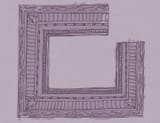
Invention is slow.
By now you’ve probably seen Noah Stokes tweet assailing responsive web design’s command over aesthetic:
We’ve written 22 blog posts about Design Thinking. View all topics »

By now you’ve probably seen Noah Stokes tweet assailing responsive web design’s command over aesthetic:
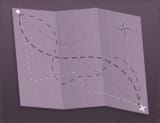
Who doesn’t love to talk about process? Every week, it seems, someone has discovered “the new way to work that everyone should be doing.” While I love a healthy process debate, I find discussions that promote a one-size-fits-all design approach problematic.

Website redesign projects are not for the faint of heart. The path is filled with dangerous pitfalls and scary things—but also great wonders. Critical junctures in a project’s timeline can slow or even possibly derail. I’ve worked on small but smart ways to improve these periods from being abrupt stops and starts to being more seamless transitions.

Bless her soul, Bessie stunk at jigsaw puzzles. She seemed less interested in recreating the dissected bucolic scene she’d purchased at Rose’s pharmacy decades ago than she was in hurriedly rearranging and redefining the jumbled mess splashed onto the modest kitchen table in front of her. There was no right way, just her way—and the multiple arrangements that lay ahead were every bit as valid to her as the ordered state its designer printed on the box. She just can’t see well, I figured. I never asked.
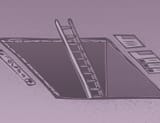
Last week, while plugging away in Photoshop—tunes blazing through my headphones, pixels flying from my fingertips—it hit me. I was in a design rut. I’d grown complacent with my pagination arrows. Countless times, for vastly different sites, I’d relied on the DIN Bold arrow character. It’s a sturdy, hard-angled, utilitarian arrow, perfectly suitable if I quit web design to design highway signs in Germany, but not the quick-fix solution for all my arrow needs.
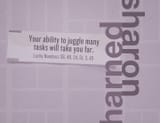
Hello. Thanks for coming back to part two of the conversation between Brett Harned and me. Please help yourself to some tea, a pastry, and a comfortable chair. Brett and I have worked together for nearly 5 years, so we thought it would be interesting to discuss the collaboration between our two disciplines that occurs somewhat invisibly. Working with a project manager allows designers to focus on being creative and doing good work. I’m loathe to think of going back to working without one.
I hope you enjoy the second part of the conversation. We’d both love to hear how your process has changed working in collaboration with other disciplines in your organization.
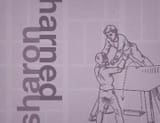
As a project manager, I’m constantly wondering how I can better support my team. I’ve always been a believer in the fact that project managers must have the ability to build relationships to understand how their team members work. It’s never as easy as “hand over the wireframe to the designer and make it pretty.” If you’re a project manager and you think that way, you’ve got a lot to learn. I urge you to sit down with your coworkers and chat about what works for them. That’s exactly what I’ve done for my article this week: a chat with Kevin Sharon, a Happy Cog Creative Director, to view project management through the eyes of a designer.

To most, it’s just the sugary centerpiece to a child’s birthday party—but to me, the Cupcake Cake is systematic genius. A balance of consistency and variety, each cupcake is decorated with the same delicate piping technique, from a carefully selected color palette, with no drop of icing wasted. The result is surprising, delightful, and the highlight of the party.

Prior to my days at Happy Cog, I worked on a team tasked with creating an online promotion for our client’s new high-end candy. The candy was delicious, but each small box sold for approximately $4, so conveying its quality was important. The product’s target market was women in their 20’s and 30’s, so my team decided to take the high-maintenance diva approach to the design. When all was said and done, we launched a microsite full of glamour and glitz, sparkles, stilettos, and lipstick tips. Users could take a quiz to determine just how “fabulous” they were. At the time, I was in my twenties, and I’ve always liked candy, so I considered myself a member of the target audience. But there was a problem: I couldn’t relate to this content at all. I liked to be girly from time to time, but sparkles and stilettos were not my thing and they never will be. I also couldn’t see any of my female friends connecting with this. To be fair, the tone of the site was tongue-in-cheek and it wasn’t taking itself too seriously, but I just didn’t feel right about it. It didn’t feel right to reduce our target audience to stereotypes. Had I known then what I know now, I probably would have spoken up and advocated for a better understanding of our audience. Were these women really into makeup and expensive clothes and nights out in Manhattan? Or were we completely off the mark?

Variety is a blessing. Here at Happy Cog, each and every design project is radically different. Show me the day when any two client design challenges are exactly the same and I’ll turn in my font library, ergonomic chair, and scribble-filled Field Notes. Retirement at 34? Sounds good. Now, where’s my fishing pole…
Copyright 1995-2025 Happy Cog™